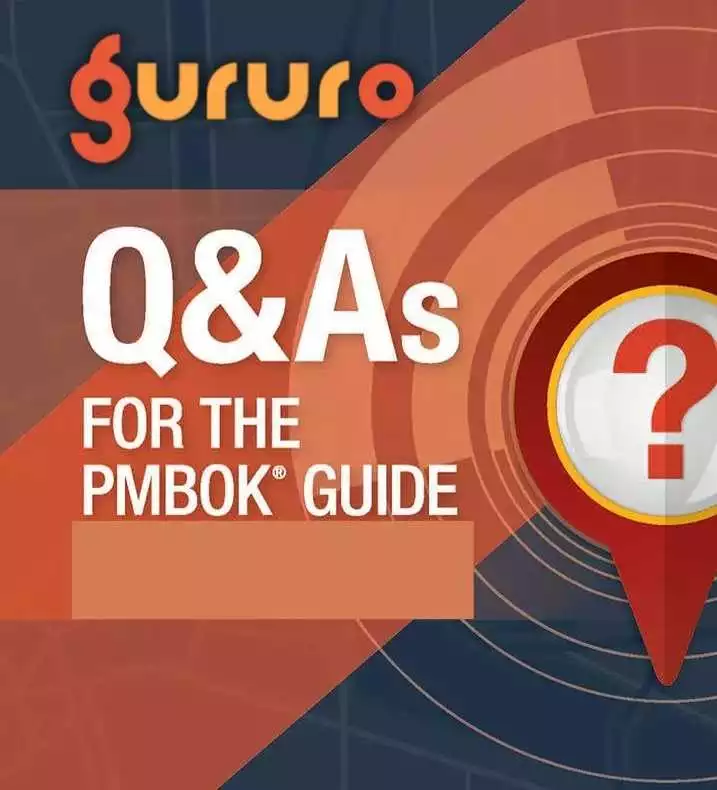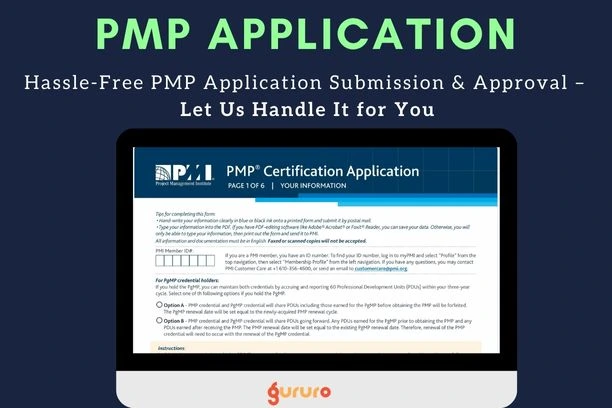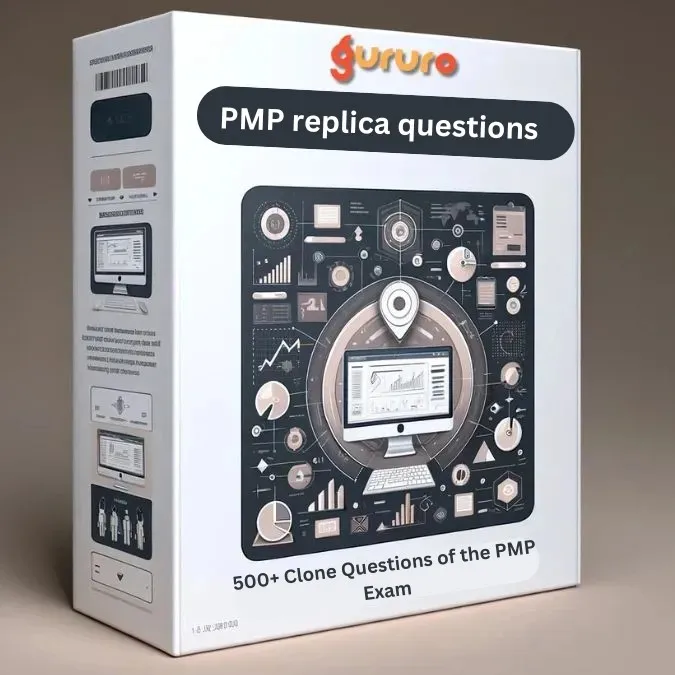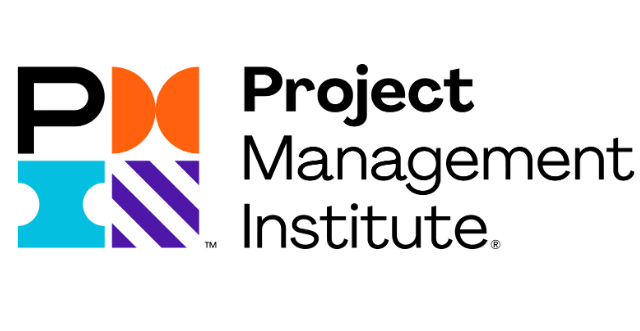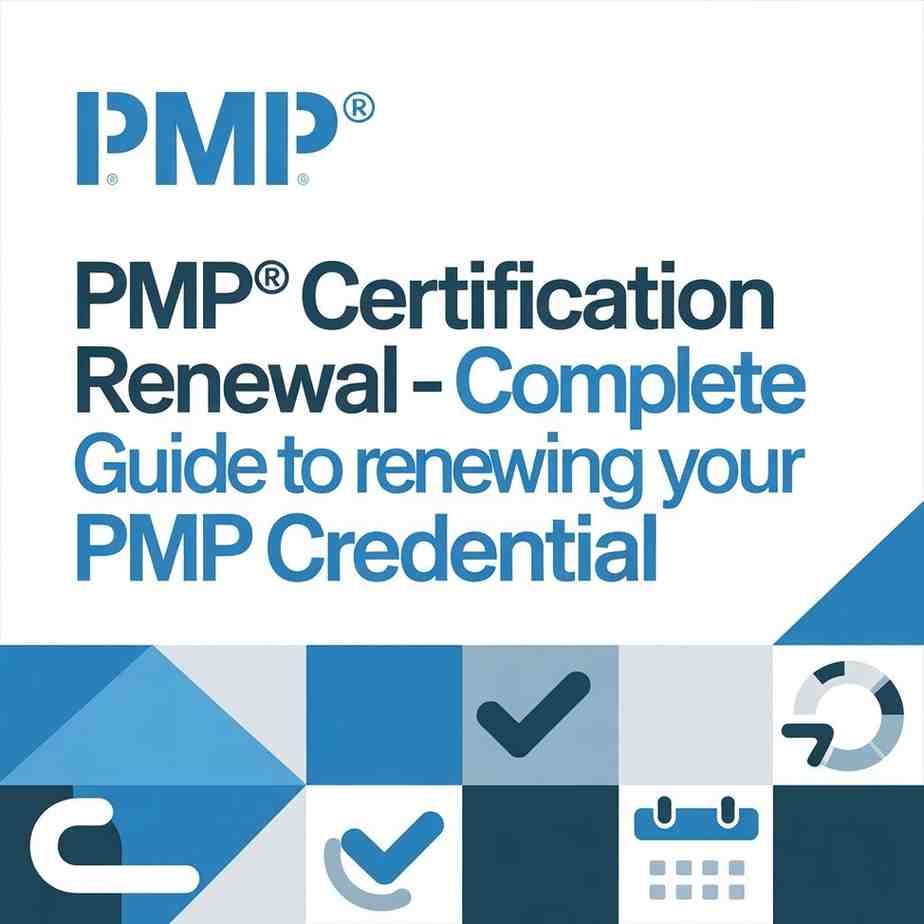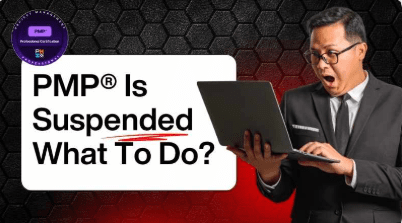Welcome to our blog on PMBOK Guide FAQs – The Project Management Body of Knowledge. PMBOK® guide is a widely recognized standard for project management. It provides a comprehensive set of best practices, tools, and techniques for managing projects effectively. In this blog, we will answer some of the most frequently asked questions about the PMBOK® guide and how it can help you manage your projects more successfully. Whether you’re a seasoned project manager or new to the field, this resource is essential for improving your project management skills. So let’s dive in and explore the world of the PMBOK® guide!
What is the PMBOK® guide, and why is it important?
PMBOK® guide stands for Project Management Body of Knowledge. It is a standard for project management developed by the Project Management Institute (PMI). The PMBOK® guide is essential because it provides a common language and framework for managing projects. In addition, it outlines a set of best practices, tools, and techniques that are widely recognized as effective for managing projects in various industries.
Using the PMBOK® guide can help project managers:
- Understand and apply proven project management methodologies (How to Make the Most of Your PMP Certification)
- Improve communication with team members and stakeholders
- Identify and mitigate risks
- Monitor and control project progress
- Deliver projects on time, within budget, and to the required quality standards
The PMBOK® guide is also essential because it is the basis for the PMP® certification exam, which is a globally recognized certification in project management.
By studying and using the PMBOK® guide, project managers can increase their knowledge and skills, leading to more successful projects and career advancement opportunities.
Who should use the PMBOK® guide?
PMBOK® guide is intended for use by project managers and other professionals involved in the planning, execution, and delivery of projects. This includes project team members, stakeholders, and anyone else who has a role in the project management process.
It’s particularly useful for those planning to become CAPM certified or renew their PMP after expiry, offering a foundation of knowledge that is essential for certification success.
PMBOK® guide is handy for those responsible for managing projects, as it provides a framework and best practices for effectively managing project scope, schedule, budget, quality, resources, communications, risks, and other critical aspects of project delivery.
PMBOK® guide is also helpful for those interested in pursuing a career in project management, as it provides a foundation of knowledge essential for success in this field. Many organizations and universities use the PMBOK® guide as a reference in project management courses and training programs, and it is the basis for the Project Management Professional (PMP) certification exam.
Overall, the PMBOK® guide is a valuable resource for anyone involved in the project management process or interested in building their knowledge and skills in this area.
How is the PMBOK® guide organized?
PMBOK® guide is organized into two main parts:
The process groups are the five distinct phases of a project: initiating, planning, executing, monitoring and controlling, and closing. Each process group contains a set of processes that must be completed to manage a project successfully.
The knowledge areas are the specific areas of project management that must be addressed to complete a project successfully. There are ten knowledge areas in the PMBOK® guide:
- Project integration management
- Project scope management
- Project schedule management
- Project cost management
- Project quality management
- Project resource management
- Project communication management
- Project risk management
- Project procurement management
- Project stakeholder management
Each knowledge area contains a set of processes and techniques that must be applied to effectively manage the corresponding aspect of a project. The knowledge and process groups are interrelated, with processes from different knowledge areas often co-occurring within a given process group.
For those looking to master the structure in a simplified format, here’s a helpful resource: 10 Steps to Renew PMP Certification.
The PMBOK® guide process groups
The PMBOK® guide process groups are the five distinct phases of a project: initiating, planning, executing, monitoring and controlling, and closing. Each process group contains a set of processes that must be completed to manage a project successfully.
- Initiating process group: This process group is concerned with establishing the project and obtaining authorization to begin work. It includes processes for identifying and defining the project, as well as for developing a business case and securing approval to proceed.
- Planning process group: This process group is concerned with defining and organizing the project’s work. It includes processes for developing a project management plan and defining and documenting the project scope, schedule, budget, quality, resources, and risks.
- Executing process group: This process group is concerned with carrying out the work defined in the project management plan. It includes processes for acquiring and managing project resources and executing and controlling the project’s work.
- Monitoring and controlling process group: This process group is concerned with tracking and regulating the progress and performance of the project. It includes processes for monitoring and controlling the project work and identifying and correcting any deviations from the project management plan.
- Closing process group: This process group is concerned with completing and transitioning the project’s deliverables to the customer. It includes processes for finalizing all project activities and obtaining final acceptance of the project deliverables.
Each stage emphasizes essential project management competencies and links well to the PMP audit preparation steps.
The PMBOK® guide knowledge areas
The PMBOK® guide knowledge areas are the specific areas of project management that must be addressed to complete a project successfully. There are ten knowledge areas in the PMBOK® guide:
- Project integration management: This knowledge area is concerned with the overall management of the project and how it fits into the larger organizational context. It includes processes for developing and maintaining a project management plan and coordinating the project’s various components.
- Project scope management: This knowledge area is concerned with defining and documenting the project’s work and ensuring that the project stays on track and within the defined boundaries. It includes processes for defining and documenting the project scope and creating a work breakdown structure and a scope management plan.
- Project schedule management: This knowledge area is concerned with planning, coordinating, and monitoring the project schedule. It includes processes for defining and documenting the project schedule and creating a schedule management plan and a schedule baseline.
- Project cost management: This knowledge area is concerned with estimating, budgeting, and controlling project costs. It includes processes for defining and documenting project costs and creating a cost management plan and a cost baseline.
- Project quality management: This knowledge area ensures that the project deliverables meet the required quality standards. It includes processes for defining and documenting quality standards and creating a quality management plan and a quality baseline.
- Project resource management: This knowledge area is concerned with managing the human, physical, and financial resources needed to complete the project. It includes processes for acquiring, managing, and releasing project resources.
- Project communication management: This knowledge area is concerned with planning, distributing, and managing information related to the project. It includes processes for creating a communication management plan and a stakeholder management plan.
- Project risk management: This knowledge area is concerned with identifying, analyzing, and responding to risks that may impact the project. It includes processes for creating a risk management plan and a risk register.
- Project procurement management: This knowledge area concerns acquiring goods and services from outside the project team. It includes processes for creating a procurement management plan and conducting procurement activities.
- Project stakeholder management: This knowledge area is concerned with identifying, analyzing, and managing the expectations and interests of stakeholders. It includes processes for creating a stakeholder management plan and for communicating with stakeholders.
These ten knowledge areas provide structure and depth to the PMBOK approach. For instance, under Risk Management, it’s important to understand how Giving Back PDUs can align with knowledge sharing activities in real projects.
And under Stakeholder Management, communication is key—check out this practical insight on how to effectively use your PMP certification.
PMBOK® guide and other project management frameworks
PMBOK (Project Management Body of Knowledge) is a widely recognized standard for project management. It provides a set of guidelines and best practices for managing projects in various industries. The PMBOK guide is published by the Project Management Institute (PMI), a professional organization for project management.
There are other popular frameworks such as PRINCE2 and Scrum. The differences and overlaps are explored in depth in PMP vs Scrum Master, which compares the planning-heavy PMBOK to the iterative style of Agile.
These frameworks provide similar guidance on planning, executing, and delivering projects but may have different approaches and terminology. Therefore, it’s important to choose a project management framework that is appropriate for your specific project and organization.
You can also read more about the Scrum Alliance SEUs if you’re pursuing multiple certifications.
Comparing PMBOK® guide to agile methodologies
PMBOK guides the traditional, plan-driven approach to project management, while agile methodologies are based on an iterative and incremental approach.
One key difference between the two is that PMBOK follows a linear, phased process, with distinct steps for initiating, planning, executing, monitoring and controlling, and closing a project. In contrast, agile methodologies follow a more flexible, iterative process, focusing on the rapid delivery of small increments of work and a high level of collaboration with the customer.
Agile methodologies, such as Scrum and Lean, value flexibility and adaptability over strict planning and rely on continuous feedback and iteration to drive progress. PMBOK, on the other hand, emphasizes the importance of a well-defined plan and a thorough planning process.
Both PMBOK and agile methodologies can be effective approaches to project management, depending on the specific needs and constraints of a project. Some organizations may choose to use a hybrid approach, combining elements of both PMBOK and agile methodologies.
With the PMPBOK 7th edition, Agile has forayed into PMPBOK and has been provided a significant portion.
Agile is flexible, iterative, and customer-focused. PMBOK is structured, phased, and documentation-heavy. For those confused about which path to take, here’s an article that may help: Top 10 Reasons Why Not To Do PMP.

Using PMBOK® guide with other project management frameworks
PMBOK is a widely recognized standard for the practice of project management, and it is often used in conjunction with other project management frameworks.
For example, an organization may use PMBOK as the basis for its project management methodology but also incorporate elements of other frameworks, such as agile methodologies, to suit the specific needs of a project.
Similarly, an organization may use another project management framework as its primary approach but still reference PMBOK as a source of best practices and guidelines for certain aspects of project management.
Using PMBOK in conjunction with other project management frameworks can be an effective way to customize a project management approach that is tailored to the specific needs of an organization or project. It’s important to choose the framework or combination of frameworks that best meets the needs of your project and organization.
Many professionals follow a hybrid approach. To understand how certifications like PMP remain valid in such evolving environments, you can explore Is PMP Certification Losing Its Value?.
Tips for implementing PMBOK® guide in your project management practice
Here are some tips for implementing PMBOK in your project management practice:
- Understand the principles and guidelines of PMBOK: Familiarize yourself with the content of the PMBOK guide and understand the principles and guidelines it presents. This will help you to apply the PMBOK approach to your projects effectively.
👉 Understand the PMP Continuing Certification Requirements (CCR) Process
- Tailor the PMBOK process to your specific project: While PMBOK provides a standard set of processes, it is important to tailor these processes to the specific needs of your project. This may involve adapting the processes to fit the unique constraints and requirements of your project.
👉 How to Renew PMP Certification in 2025
- Train your team on PMBOK: Make sure that your project team is familiar with the PMBOK approach and the specific processes you will be using. Providing training on PMBOK can help ensure that your team can apply the methodology to your projects effectively.
- Use PMBOK in conjunction with other frameworks: PMBOK can be used in conjunction with other project management frameworks, such as agile methodologies. Consider using a hybrid approach that combines the strengths of multiple frameworks to suit the specific needs of your project.
👉 Case Study Analysis: Real-World Applications of PMP Knowledge
- Continuously review and improve your use of PMBOK: As with any project management approach, it’s important to regularly review and assess your use of PMBOK to identify areas for improvement. This can help ensure that you are using the most effective and efficient processes for managing your projects.
Is PMBOK still relevant?
Yes, the PMBOK® Guide is still relevant today. It continues to serve as a foundational standard for project management by offering best practices that are applicable across diverse industries and project types. As project management evolves with trends like Agile, the PMBOK guide has also adapted—particularly in its 7th edition—with a broader emphasis on principles and outcomes over processes.
To understand how PMBOK complements newer practices, explore From Theory to Practice: Implementing PMP Concepts in Real Projects.
That being said, PMBOK is a common project management framework, but other approaches may be more suitable for specific projects or organizations. It’s important to consider a project’s needs and constraints when choosing a project management approach.
Can I get PMBOK for free
Yes, PMI members get a free digital copy of the PMBOK Guide. Not sure if PMI membership is worth the fee? Here’s a breakdown of PMI membership benefits and costs.
There are also several resources available online that provide summaries and overviews of PMBOK. However, these may need to provide the level of detail and coverage as the full guide.
It’s essential to be aware that using PMBOK may also require obtaining additional materials and training, depending on your organization’s or project’s specific needs and goals.
Can I print PMBOK
If you have a copy of the PMBOK guide, you should be able to print it for personal use. However, it’s important to note that the PMBOK guide is copyrighted material, and it is illegal to distribute copies of the guide without permission from PMI.
Is PMBOK free for PMI members
PMI offers its members a free digital copy of the PMBOK guide as part of their membership benefits. To access the free copy, members must have an active PMI membership and log in to their account on the PMI website.
Non-members can purchase a copy of the PMBOK guide from PMI or from other retailers.
how to pronounce PMBOK
PMBOK is an acronym that stands for Project Management Body of Knowledge. It is pronounced “P-M-Bok,” emphasizing the first syllable.
How PMBOK treats project risk
PMBOK includes guidance on how to identify, assess, and mitigate risks in a project.
PMBOK defines project risk as “an uncertain event or condition that, if it occurs, has a positive or negative effect on one or more project objectives.” PMBOK recommends using a systematic process to identify and assess risks and to develop and implement strategies for mitigating or managing those risks.
PMBOK recommends using several tools and techniques for managing risks, including:
- Risk identification: This involves identifying potential risks that could affect the project. This can be done through various methods, such as brainstorming sessions, risk checklists, and stakeholder analysis.
- Risk assessment: This involves evaluating the likelihood and impact of identified risks. This can help prioritize risks and focus efforts on the most significant risks.
- Risk response planning: This involves developing strategies for dealing with identified risks. This may include strategies for avoiding, transferring, mitigating, or accepting risks.
PMBOK recommends regularly reviewing and updating the risk management plan throughout the project to ensure that risks are effectively managed.
One of the core knowledge areas in PMBOK is Project Risk Management, which involves identifying, analyzing, and responding to risks. If you’re preparing for certification and want to master this area, check out How to Make the Most of Your PMP Certification.
How many pages are there in PMBOK?
The PMBOK is updated regularly to reflect changes in project management practices and technologies.
The most recent edition of the PMBOK guide, PMBOK Guide – Seventh Edition, was published in 2020 and is approximately 692 pages long. The guide includes chapters on the project management process, project management frameworks, and the role of the project manager, as well as chapters on specific project management processes such as planning, executing, monitoring and controlling, and closing.
How does PMBOK define a project?
PMBOK (Project Management Body of Knowledge) defines a project as “a temporary endeavor undertaken to create a unique product, service, or result.” This means that a project is a temporary effort to produce a specific result and is not ongoing or routine work.
PMBOK also notes that projects have several characteristics that distinguish them from ongoing work, including:
- A specific goal or objective: A project is undertaken to achieve a particular result or outcome.
- A defined start and end date: A project has a defined beginning and ending, and it is not an ongoing or indefinite effort.
- A unique product, service, or result: A project produces an exceptional result that is not a routine or ongoing deliverable.
- Involves uncertainty: Projects often involve uncertainty and risk, as they may involve new or unfamiliar technologies, processes, or stakeholders.
- Involves resources from multiple functional areas: Projects often involve resources from various functional areas of an organization, such as engineering, marketing, and finance.
PMBOK recommends using a systematic approach to planning and managing projects to increase the likelihood of success and achieve the desired results.
how to download PMBOK from PMI
PMI members can access and download a digital copy of the PMBOK guide from the PMI website as part of their membership benefits.
To download a copy of the PMBOK guide from PMI:
- Go to the PMI website (www.pmi.org).
- Click on the “Log In” button in the top right corner of the page.
- Enter your PMI login credentials (username and password).
- Once logged in, click on the “Standards” tab in the top menu.
- Under the “PMBOK Guide” heading, click on the link for the “PMBOK Guide – Seventh Edition” (or the most current edition).
- On the PMBOK guide page, click on the “Download” button.
- You will be prompted to accept the terms of use for the PMBOK guide. After reviewing the terms, click on the “Accept” button to download the guide.
It’s important to note that the PMBOK guide is copyrighted material and is only available for personal use by PMI members. It is illegal to distribute copies of the guide without permission from PMI.
What PMBOK does
The PMBOK guide covers a wide range of topics related to project management, including:
- The project management process: The PMBOK guide defines a standard set of processes for initiating, planning, executing, monitoring and controlling, and closing a project.
- The project management framework: The PMBOK guide presents a framework for managing projects, including the roles and responsibilities of the project manager and the project team and the tools and techniques used in project management.
- The role of the project manager: The PMBOK guide discusses the skills and competencies needed to effectively manage a project, including leadership, communication, and decision-making.
- Specific project management processes: The PMBOK guide covers several specific processes used in project management, such as planning, executing, monitoring and controlling, and closing.
The PMBOK guide is intended to be a reference for project managers and can be used to develop project management methodologies within organizations.
The PMBOK guide outlines not just project phases but also the project manager’s competencies, which are reflected in PMI’s Talent Triangle. To dive deeper, explore How Many PDUs Are Required from Each Section of the Talent Triangle.
When was the PMBOK 7th edition released?
The most recent edition of the PMBOK guide is the PMBOK Guide – Seventh Edition, which was released in 2020.
The PMBOK guide is updated regularly to reflect changes in project management practices and technologies. The 7th edition was released in 2020. It introduced a more flexible, principle-based approach, reflecting the realities of modern project delivery. Learn how this shift compares to older process-based approaches in Is PMP Certification Losing Its Value?
which PMBOK for PMP exam
The PMP (Project Management Professional) exam is based on the PMBOK (Project Management Body of Knowledge) guide.
The PMP exam is based on the most current edition of the PMBOK guide at the time of the exam. The PMP exam is based on the PMBOK Guide – Seventh Editions released in 2020.
PMP candidates need to be familiar with the content and guidelines presented in the PMBOK guide, as the exam will test their knowledge and understanding of the material. PMP candidates are also expected to be familiar with the standard processes and the project management framework presented in the guide.
PMI recommends that PMP candidates review the PMBOK guide and other study materials to prepare for the exam. Several review courses and study materials are available to help candidates prepare for the PMP exam.
Who created PMBOK | History Of PMBOK
PMBOK was developed by the Project Management Institute (PMI), a professional organization for project management.
PMI was founded in 1969, and the first edition of the PMBOK guide was published in 1996. The guide has been updated regularly to reflect changes in project management practices and technologies.
The PMBOK guide is the result of a collaborative effort by PMI and its members, who contribute their knowledge and experience to the development of the guide. As a result, the guide is based on the collective knowledge and practices of project management professionals from various industries and disciplines.
which PMBOK for the CAPM exam
The CAPM exam is based on the most current edition of the PMBOK guide at the time of the exam. Currently, the CAPM exam is based on the PMBOK Guide – Seventh Edition, which was released in 2020.
It’s important for CAPM candidates to be familiar with the content and guidelines presented in the PMBOK guide, as the exam will test their knowledge and understanding of the material. CAPM candidates are also expected to be familiar with the standard set of processes and the project management framework presented in the guide.
PMI recommends that CAPM candidates review the PMBOK guide and other study materials as part of their preparation for the exam. There are also a number of review courses and study materials available that can help candidates prepare for the CAPM exam.
Conclusion : PMBOK guide FAQs
In conclusion, PMBOK (Project Management Body of Knowledge) is a widely recognized standard for project management practice, and it is published by the Project Management Institute (PMI). The guide provides guidelines and best practices for managing projects in various industries, and it is the basis for PMI’s Project Management Professional (PMP) certification.
PMBOK is just one of many project management frameworks, and there may be more appropriate approaches for some projects or organizations. Therefore, it’s essential to carefully consider a project’s specific needs and constraints when choosing a project management approach.
PMI offers its members a free digital copy of the PMBOK guide, and non-members can purchase a copy from PMI or other retailers. The guide is updated regularly to reflect changes in project management practices and technologies, and the most current edition is the PMBOK Guide – Seventh Edition, which was released in 2020.
If you’re preparing for PMP, check out the 10 Steps to Renew PMP Certification and PMP Renewal Cycle Explained to stay ahead.

